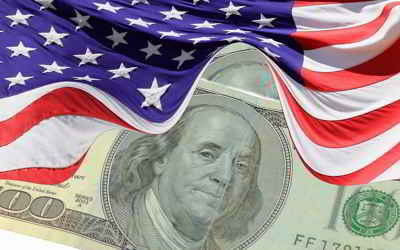Utah Economy
Agriculture and Industry in Utah
Utah economy is a set of human and social activities and institutions related to the production, distribution, exchange and consumption of agriculture and industry goods and services. The balance between Utah various economic sectors differs largely between various regions and other states in the US.Utah Agriculture and Industry
Utah's real gross state product in 2012 was estimated to be $111,808 which was $75,632 and 40% lower than the national state average, $187,440. Utah has the 33rd highest GSP out of the 50 states.
Although the land in Utah is not particularly well-suited to farming overall, the original settlers of the state, the Mormons, were determined to use the land for agriculture. They also hoped that the difficulties of successfully farming this arid land would discourage others from settling in the area. Major crops grown today in Utah include hay, corn, barley and wheat, but the majority of the state's agricultural income comes from livestock including sheep, cattle, dairying and poultry.
Ironically, the state is rich in natural resources, particularly, for mining, but the leaders of the Mormon Church discouraged followers from pursuing its development. Therefore, it has been primarily non-Mormons who have become involved in the mining industry. Utah is a leading producer of copper, gold, silver, lead, zinc, and molybdenum. The state also has rich oil shale deposits and low-sulfur coal.
The Mormon Church has also distrusted industrialization, but the establishment of defense plants and military installations in the state during World War II spurred growth in this area. Close to iron, coal and limestone, Provo has become a steel center. Utah has become a center for aerospace research and the production of missiles, spacecraft, computer hardware and software, and electronic systems. Most recently, tourism has become another leading industry in Utah, with Salt Lake City hosting the 2002 Winter Olympics.
Utah Agriculture:
Cattle, dairy products, hay, turkeys.
Utah Industry:
Machinery, aerospace, mining, food processing, electric equipment, tourism.
Trade replaced government as the leading employer in Utah in 1980. Nearly 14% of personal income in the state was derived from government sources
in 1995, a proportion increased to 14.7% by 1997. With more than 70% of Utah lands under US control and some 37,750 civilian workers on federal payrolls-
and others employed by defense industries or the military- the federal presence in Utah is both a major economic force and a controversial political
issue. On the one hand, elected officials have sought federal funds for mammoth reclamation and power projects. On the other hand, they resent many
federal programs concerned with social welfare, land use, or environmental protection. Employment in the 1990s shifted away from agriculture, mining,
transportation, and communications toward government, trade, and service occupations, and to a much lesser extent, manufacturing. Utah suffered disproportionately
from cuts in the federal military budget in the early nineties, but from 1997 to 2001, output from the government sector increased 27%, including a
30.7% increase from federal operations, civilian and military. Even stronger growth was shown in other service sectors, with financial services up
55%, and general services up 33.8%. Output from Utah's manufacturing sector increased 18% between 1997 and 2000, increasing its share in the gross
state product from 14.1% to 15.6%, but then plummeted 11.7% in the national recession and slowdown of 2001, reducing its share in total state output
to 11.5%. In 2002, Utah ranked seventh in the nation in job losses. Construction jobs were down 7% in part because of the end of work for the 2002
Winter Olympics held in Utah. Manufacturing jobs in December 2002 were down 3.2% year-on-year, and the loss of high-paying jobs in high-tech and venture
capital fields was seriously impacting personal income in the state. As of September 2002, personal bankruptcy filings had increased 15% over the year
before, as Utah continued to have among the highest foreclosure start and bankruptcy rates in the country.
In 2001, Utah's gross state product gross state product was $70.4 billion, the 33rd largest among the states, to which general services contributed
$14.5 billion; general services, $14.1 billion; trade, $11.2 billion; government, $10.3 billion; manufacturing, $8.1 billion; transportation and public
utilities, $85.6 billion, and construction, $4.4 billion. The public sector in 2001 constituted 14.7% of gross state product, compared to the 12% average
for the states.

US economy is relies on private decision-making ("economic freedom")




